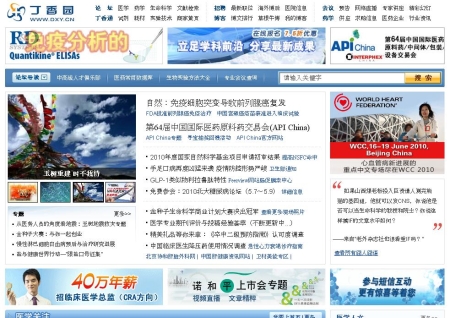June 22nd, 2010 by PhilBaumannRN in Better Health Network, Health Policy, Opinion
No Comments »

Should we have a Bill of Rights for social media sites? It’s something we need to consider as such software becomes an integral part of our daily communications.
Some might say such a document isn’t needed, that we aught to take a buyer-beware approach. But I would argue that the core issue of the privacy threats of new media isn’t really privacy, but rather dignity. Having to go through fifty steps to set your privacy settings is undignified, even if your privacy is ensured.
So if we value human dignity, we aught to consider standards of dignity. A Bill of Rights, even if unenforceable, may at least remind us of the disturbing force of social technologies. What’s your take?
*This blog post was originally published at Phil Baumann*
June 15th, 2010 by Bryan Vartabedian, M.D. in Better Health Network, News, Opinion
No Comments »

If you’ve come to believe that physicians and social networks aren’t a good combination, check out this teaser from the up-and-coming physician network, iMedExchange.
While facilitated physician networks have been a difficult sell, iMedExchange appears to be delivering a fresh, expandable, next-generation platform that will offer real value for discerning doctors.
iMedExchange went into expanded beta beginning yesterday. If you were an iMed user before, watch your inbox and give it a test drive. Keep an eye on this one. I’ve had a look. It’s very nice and I understand the best is yet to come.
*This blog post was originally published at 33 Charts*
May 25th, 2010 by Berci in Better Health Network, Health Policy, News, Opinion, Research
No Comments »

Here are a few papers and publications focusing on how social media can be used in medicine, healthcare and science. These represent the evidence-based approach in social media:
Google docs: a better method than a paper clinical schedule. Kippenbrock T, Holloway E, Moore DD. Comput Inform Nurs. 2010 May-Jun;28(3):138-40.
How to get the most from the medical literature: keeping up to date in nephrology. Cullis J, Webster AC. Nephrology (Carlton). 2010 Apr;15(3):269-76.
Twitter: consider the possibilities for continuing nursing education. Billings DM, Kowalski K, Bristol TJ. J Contin Educ Nurs. 2010 May;41(5):199-200.
Literature search on risk factors for sarcoma: PubMed and Google Scholar may be complementary sources. Mastrangelo G, Fadda E, Rossi CR, Zamprogno E, Buja A, Cegolon L. BMC Res Notes. 2010 May 10;3(1):131.
Effect of visual media use on school performance: a prospective study. Sharif I, Wills TA, Sargent JD. J Adolesc Health. 2010 Jan;46(1):52-61.
Patients’ Evaluations of Health Care Providers in the Era of Social Networking: An Analysis of Physician-Rating Websites. Lagu T, Hannon NS, Rothberg MB, Lindenauer PK. J Gen Intern Med. 2010 May 13.
Tweeting science and ethics: social media as a tool for constructive public engagement. Regenberg AC. Am J Bioeth. 2010 May;10(5):30-1.
*This blog post was originally published at ScienceRoll*
May 13th, 2010 by BarbaraFicarraRN in Better Health Network, Health Policy, Health Tips, Opinion, Research
No Comments »

A patient apologized to me for asking so many questions. “There’s no need to apologize,” I said to the patient, “It’s wonderful that you have so many questions concerning your healthcare.” I mentioned to her that she is an “empowered and engaged patient,” and that’s a good thing.
It’s no secret that health consumers are turning to the Internet for health information.
In a recent article from MediaPost News, Gavin O’Malley writes that, according to new a study by Epsilon Strategic & Analytic Consulting Group, “40% of online consumers use social media for health information — reading or posting content — while the frequency of engagement varies widely. According to the study, individuals who use healthcare social media fall into two broad groups: the 80% who are highly engaged patients, and take active roles in health management; and the 20% who lack confidence to play an active role in their own health.” Read more »
*This blog post was originally published at Health in 30*
May 13th, 2010 by Berci in Better Health Network, Medblogger Shout Outs, News, Opinion
No Comments »

 In the medical blogosphere, we talk a lot about medical community sites such as Sermo.com, Ozmosis.com or Doctors.net.uk and we always mention these as huge communities.
In the medical blogosphere, we talk a lot about medical community sites such as Sermo.com, Ozmosis.com or Doctors.net.uk and we always mention these as huge communities.
While Sermo has over 110,000 physician members, the Chinese dxy.cn has over 1.4 million professionals on its site. It has a blog, a conference site, a pharmacy channel, biomedical business information platform, it covers more than a 100 specialties, and offers thousands of jobs. I tried to translate the mission statement with Google Translate:
Lilac Garden Biomedical Science and Technology Network ( DXY.CN ) was established in July 23, 2000, and since its inception has been committed for the majority of medical professionals to provide a specialized life science platform. With professionalism and strong accumulation and the deepening and development of professional exchange, Lilac Garden has grown into the largest and most popular group of pharmaceutical industry professionals to network media platforms.
Now I’m looking for Chinese doctors who would help us create a Chinese section for PeRSSonalized Medicine, the easiest medical information aggregator that features only selected resources. If you know someone, please let me know.
*This blog post was originally published at ScienceRoll*






 In the medical blogosphere, we talk a lot about medical community sites such as
In the medical blogosphere, we talk a lot about medical community sites such as 







